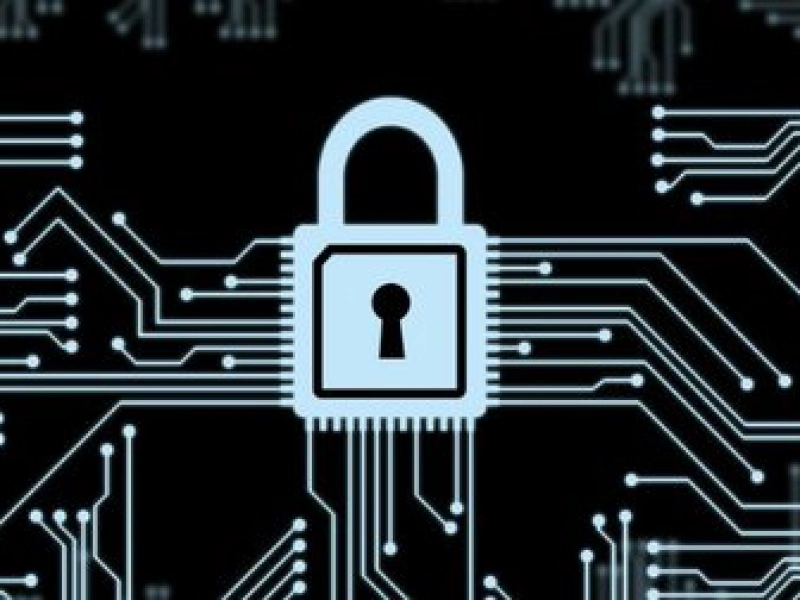"IRON, Paper, Scissors. How to choose a cold cryptocurrency wallet
We tell you how to choose a reliable wallet for cryptocurrencies and keep them safe
- A cold wallet (Ledger) is a physical device or application designed to securely store and manage cryptocurrency assets without a permanent connection to the Internet. Unlike online hot wallets, cold wallets are completely isolated from the network, allowing for increased security of funds. They work by generating two keys: a public key used to receive transfers, and a private key needed to manage the contents of the wallet. To ensure the safety of your funds, it is important to choose a trusted and reliable cold wallet operator.
- Types of cold wallets
There are several different types of cold wallets, each with its own set of features and benefits. Some of the most popular include hardware wallets, software wallets, and paper wallets.
- Hardware Wallet
A hardware wallet is a physical device that stores your cryptocurrency assets offline. These wallets create private and public keys using a random number generator, providing an extra layer of security. However, there are some risks to consider when using a hardware wallet. For example, if the device is damaged, your assets could be lost. It is also important to choose a proven and trustworthy company to provide you with a hardware wallet to avoid any security risks. If you buy a device off hand or from a non-authorized dealer, there is a risk that its internal software could have been modified in order to steal the new owner's cryptocurrency.
Hardware wallets are the closest to true cold storage. They are compact, easy to use, and highly secure. Most hardware wallets can store multiple cryptocurrencies, making them the best choice for those who want to manage a diverse portfolio of assets.
- Software Wallet
Software wallets are digital wallets that can be installed on a computer or mobile device. Desktop wallets are stored on your computer and typically use a wallet.dat file to store private keys. Mobile wallets, on the other hand, use QR codes or NFC technology to make transactions. Software wallets are convenient, but they are not 100% secure. Mobile wallets, in particular, are vulnerable to hacking because they operate over the Internet. In addition, to keep your assets secure, you need to back up your seed phrase and private keys, and encrypt your mobile wallet.
Software wallets are a good choice for those who want to manage their cryptocurrency assets quickly and easily. They are especially convenient for those who need to make transactions on the go. However, it is important to be aware of the security risks associated with software wallets and to take steps to mitigate those risks.
- Paper Wallet
A paper wallet is a type of cold-call wallet, which is a physical piece of paper on which your private and public keys are recorded, usually in the form of a QR code. This type of wallet is very secure if you keep it in a safe and secure place. However, if the paper wallet is lost or damaged, your assets will be lost. It is also important to consider that paper wallets are not as convenient as digital wallets because you will have to manually enter your private keys every time you want to make a transaction.
Thick and thin wallets
Another important difference between the different types of cold wallets is the difference between so-called "thick" and "thin" wallets.
Thick purses.
Thick wallets, also known as full nodes, are a type of cryptocurrency wallet that stores the entire blockchain of a particular cryptocurrency on a hard drive. This means that they download and store all data about all transactions on a computer or other device. Some of the benefits of using a fat wallet include:
Increased security. By loading the entire blockchain, thick wallets provide a higher level of security than thin wallets.
Enhanced privacy. Because all information is stored locally, thick wallets provide greater privacy for users.
Complete control. Thick wallets give users full control over cryptocurrency transactions, as they can confirm transactions and generate new ones themselves.
However, using a fat wallet also has some drawbacks, including:
- Large amount of memory. Storing a large amount of data on a fat wallet requires a lot of free disk space, making it less convenient for users with limited resources.
Slower data processing. Transaction validation and synchronization with the network is slower compared to thin wallets.
Thin wallets
Thin wallets, also known as light nodes, are a lightweight version of thick wallets. They do not store the entire blockchain, but load only the necessary information required for transactions. Thin wallets have several advantages over thick wallets, including:
Faster transaction processing. Thin wallets can process transactions faster because they only load required information.
Less storage space. Thin wallets require less storage space.
However, a disadvantage of thin wallets is that they are less secure than thick wallets because they rely on a third-party server to validate transactions.
Pros and cons of cold wallets
Cold wallets have a number of advantages and disadvantages that should be considered when choosing a wallet to store cryptocurrency.
Advantages of cold wallets:
Increased security. Cold wallets offer a higher level of security than hot wallets because they are offline and less susceptible to hacking.
Enhanced privacy. Cold wallets store your private keys locally, making it harder for third parties to access your cryptocurrency.
Control over funds. By using cold wallets, you have complete control over your funds because only you have access to your private keys.
Disadvantages of cold wallets:
More difficult to use. Cold wallets can be more difficult to set up and use than hot wallets.
Limited availability. Cold wallets cannot be used anywhere because they require a device with a secure Internet connection.
Risk of loss or damage. Cold wallets can be lost, damaged, or stolen, which can result in the loss of your cryptocurrency.
The best cold wallets for cryptocurrency
There are many cold wallets available, and choosing the right one for you depends on your specific needs and requirements. Here are some of the most popular cold wallets:
- The most popular cold wallets:
Ledger Nano X.
Trezor Model T
KeepKey
- Most popular software wallets:
Exodus
MyEtherWallet
Electrum
- The most popular multicurrency wallets:
Jaxx Liberty
Coinomi
Edge
How to create a cold cryptocurrency wallet on a flash drive?
There are several options for creating a cold wallet and saving it to a USB flash drive. Here are three popular options:
Option 1:
Choose a software or hardware cold wallet.
Download and install the software on your device.
Create a new wallet and follow the instructions to generate a private key.
Save the private key on a flash drive and keep it in a safe place.
Variant 2:
Use a paper wallet service or create your own using a secure generator.
Save the private key as a QR code and store it on a flash drive.
Keep the flash drive in a safe place.
Option 3:
Choose a hardware wallet that supports the USB flash drive.
Connect the hardware wallet to your computer and follow the instructions to create a private key.
Store the private key on the hardware wallet and keep it in a safe place.
In conclusion, cold wallets are indispensable for cryptocurrency storage security. They provide a higher level of security than hot wallets because they work offline and are not connected to the Internet. Choosing the right cold wallet depends on the needs and preferences of the individual user, as each type of wallet has its own advantages and disadvantages. It's important to carefully consider the risks and weigh the pros and cons before making a decision.
- "On Assault." Experts predicted bitcoin exchange rate movements
- UK will give up to 2 years for illegal crypto-advertising
- Visa conducted a trial launch of payments in stablecoins in the SWIFT system
- Dubai bans anonymous cryptocurrency issuance and transactions
- The owner of the second-largest network of crypto machines filed for bankruptcy
- Cryptoservice LocalBitcoins announced its closure
- Dubai bans anonymous cryptocurrency issuance and transactions
- Kraken exchange shut down stacking in the U.S. and will pay a $30 million fine there




_410x245_00e.webp)


